"Blue Yodel Number 9 (Standing on the Corner)" | "The Bridwell Blues"
The Ultimate Jazz & Country Music Crossover
My young friend, Bryce Edwards, told me that he was including “Blue Yodel No. 9 (Standing on the Corner)” in his show at Birdland next Monday, February 24 . (This is highly recommended, I hope everybody will be there!) This prompted me to do a deep dive into the “Blue Yodel,” which has to be the most celebrated “crossover,” as we would say in modern times, between jazz and country music that has ever been devised.
What jazz and country have in common is the blues, and it makes sense that the blues should be a bridge between them in this meeting behind the “Father of Country Music,” Jimmie Rodgers, and the greatest of all jazzmen, Louis Armstrong.
“The Bridwell Blues” (Chicago, June 16, 1926)
One of the delights of the latest - and regrettably final - volume in Ricky Riccardi’s epic biography of Louis Armstrong is how he puts Armstrong’s classic recording sessions in proper context, including the dozens of dates he did playing behind blues singers. These were generally of what we call the “classic blues” or “vaudeville blues” variety - from the Empress herself, Miss Bessie Smith, on down. Working under the supervision of such bandleader - pianist - composer - publisher entrepreneurs as Clarence Williams (in New York) and Richard M. Jones (in Chicago), Armstrong played behind many blues artists, both famous and obscure.
The most obscure of these artists - and one of the few males - would have to be Nolan Welsh, about whom virtually nothing is known. He’s not even mentioned in the latest volume of the Riccardi biography, the brand-new Stomp Off, Let’s Go: The Early Years of Louis Armstrong - but that’s because, for reasons we will see shortly, his collaboration with Armstrong is more relevant to the great trumpeter's slightly later work, as covered in Ricky’s previous book, Heart Full of Rhythm: The Big Band Years of Louis Armstrong. (For that matter, Welsh isn’t mentioned at all in the two major reference works devoted to the music, Encyclopedia of the Blues by Gérard Herzhaft and The Blues Who’s Who by Sheldon Harris.)
Nolan Walsh seems to have made seven sides for Okeh Records in Chicago between 1926 and 1928. On four of these, Richard M. Jones plays piano, whilst on the other three - on which he is billed as “Barrel House” Welsh - Welsh accompanies himself on piano. All seven were reissued on the CD Piano Blues Complete Recorded Works in Chronological Order, Vol. 3 - 1924-c1940s on the Austrian label Document Records - and “Bridwell Blues” has been issued on many Armstrong compilations. Armstrong plays on both sides from Welsh’s first session, “Bridwell Blues” and “St. Peter Blues.”
“Bridwell Blues” was a reference to Bridewell Prison at 26th Street and California Avenue in Chicago; I might have thought “St. Peter Blues” referred to a street in New Orleans, but it turns out he’s talking going to Heaven and sitting down “in St. Peter’s chair.” Welsh isn’t at all bad as a singer and writer - “Bridwell” is co-credited to Walsh and Jones - Jones’s playing is minimalist, he mainly stays out of everyone’s way, but Armstrong’s cornet solo is remarkably powerful even by his own increasingly Olympian standards - the very reason anybody ever noticed the record to begin with and why Jimmie Rodgers wanted to do his own version four years later.
[Verse 1]
I was standin’ on the corner, did not mean no harm.
I was standin’ on the corner, mama, did not mean no harm,
And the police came, nabbed me by my arm.[Verse 2]
Every prosecutor questioned me, partner,
The clerk, he wrote it down.
The prosecutor questioned me, partner,
The clerk, he wrote it down.
They done grant you one chance, Nolan,
But you would not leave this town.[Cornet 12-bar solo: Louis Armstrong]
[Verse 3]
As I got to the Bridewell, fell down on my knees.
And I got to the Bridewell, fell down on my knees.
Lord, kill me jailer, jailer kill me please.[Verse 4]
They assigned me to the stone quarry,
I was standing in the door…
I just coulda died!
They assigned me to the stone quarry,
I was standing in the door.
As they threw me this way, people
You know I’ve been here before.
“Blue Yodel Number 9 (Standing on the Corner)” (Los Angeles, July 16, 1930)
I am ashamed to admit that I never noticed the similarity between “Bridwell Blues” - which I had heard on an obscure LP - and “Blue Yodel Number 9 (Standing on the Corner)” but once you listen to the two, you can’t unhear it. Ricky notes that the connection might be producer / punisher Ralph Peer, who ran Okeh Records in the mid ’20s when Armstrong was recording in Chicago and by 1930 was actively producing country records, most famously by Jimmy Rodgers and the Carter Family, for RCA Victor.
Ricky also tells us that Rodgers had a very different, perhaps even more unpredictable way of playing the blues and that Louis and Lil Armstrong, and that the two of them had a hard time anticipating Rodgers’s chord changes. He quotes Armstrong as saying “I just made it wrong with him. It turned out fine!”
Daniel Weinstein: To me, this seems to be an "unrehearsed" take. The (dainty) "elephant in the room" is Lil Armstrong's accompaniment, which both follows and leads (or underlines) Rodgers' phrases. I believe this song would have been "common coin" at the time, among both black and white performers steeped in the country and/or Western traditions of songsters.Thus, Lil (and Louis) would have been familiar with the sung verses way before their studio encounter with Rodgers. They also would have been used to country blues singers dropping or adding beats and bars to accommodate extra words/syllables needed to complete the phrases. Lil probably heard these lyrics in her youth in Memphis, especially since the “corner” referred to in the song’s title is right there, on the corner of Beale Street and Main.
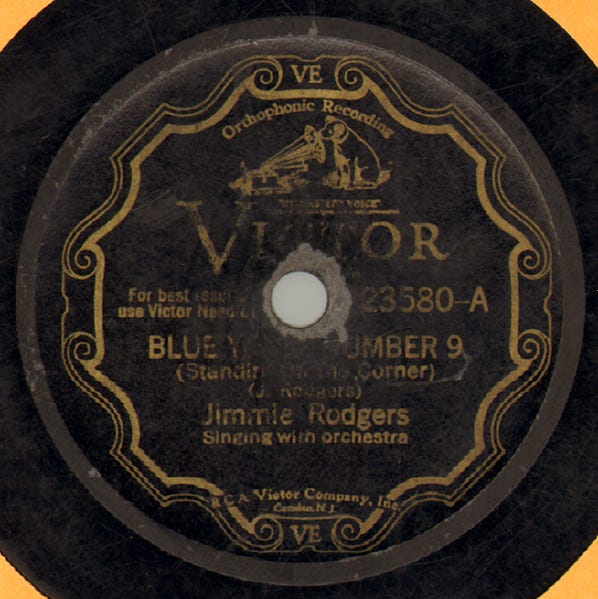
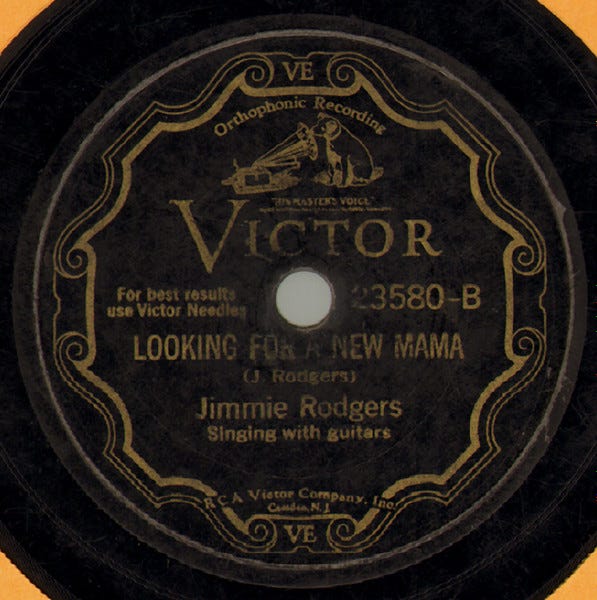
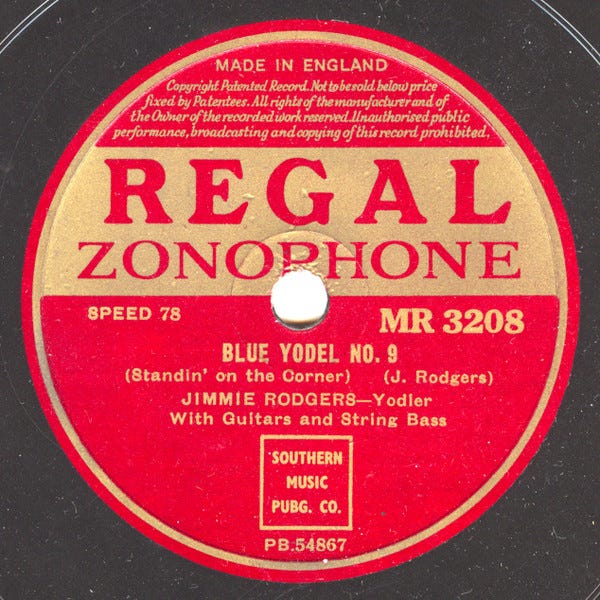

A personal note: “Blue Yodel Number 9” (as it’s listed on the original label) became a classic in both the jazz and country fields - Johnny Cash fairly kvelled over it when Armstrong was a guest on his ABC-TV series in 1970. But for a long time, the recording was kind of an urban legend. Because the Armstrongs are not credited on the label of the original Victor 78 - Pops was still under contract to Okeh - no one was absolutely certain that Armstrong and Rodgers had actually recorded together.
My late father, Herb Friedwald, who was a young jazz fan and record collector in the early 1950s, told me that in the absence of reliable discographies, it was impossible to know for sure. Thus, he took matters into his own hands and asked Armstrong directly. I never got to question Herb specifically about when and where this conversation took place - I like to think it transpired backstage at the Brooklyn Paramount circa 1952. But wherever it was, Herb did ask Armstrong about whether he actually played on “Blue Yodel Number 9,” and Pops answered, “Oh yeah, Daddy, that was me!”
[Verse 1]
Standin' on the corner, I didn't mean no harm
Along come a police, he took me by the arm
It was down in Memphis, corner of Beale and Main
He says, "Big boy, you'll have to tell me your name"[Refrain]
Dee-oh-dee-lay-ee, eh-ee, oh-dee-lay-ee[Verse 2]
I said, "You'll find my name on the tail of my shirt
”I'm a Tennessee hustler, I don't have to work"
So listen all you rounders, you better leave my women alone
'Cause I'll take my Special and run all you rounders home[Refrain]
Dee-oh-dee-lay-ee, eh-ee, oh-dee-lay-ee[Verse 3]
My good gal loves me, everybody knows
And she paid a hundred cash dollars just for me, a suit of clothes
She come to the joint, a forty-four in each hand
She said, "Stand aside, all you women and men, 'cause I'm looking for my man"[Refrain]
Dee-oh-dee-lay-ee, eh-ee, oh-dee-lay-ee
(Above - a highly unusual cover version by country singer Frankie Marvin - brother of the well-known Johnny Marvin - marking a rare appearance of the bass clarinet (!) on either a country or a blues record.)
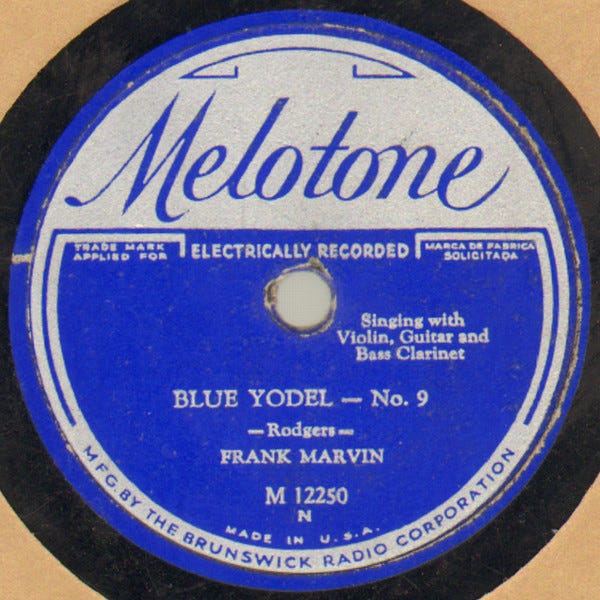
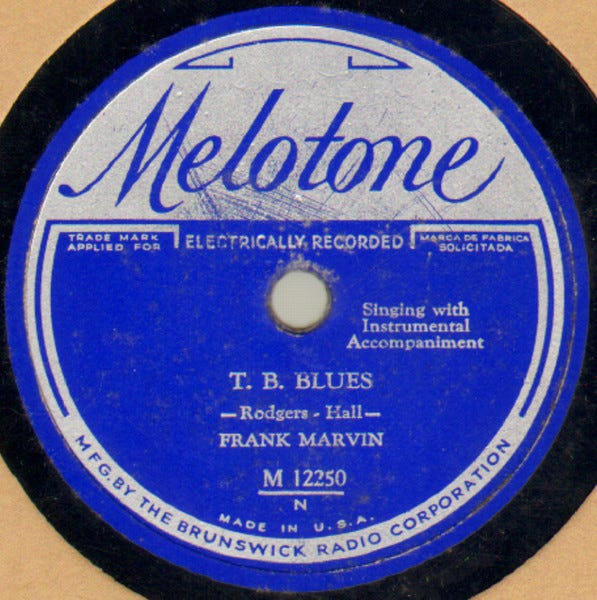
THE JOHNNY CASH SHOW (ABC TV)
(Taped at the Ryman Auditorium, in Nashville, Tennessee, on October 10, 1970. Broadcast on ABC-TV on October 28, 1970)
Armstrong’s final studio album - the last one to be recorded in his lifetime - was the highly atypical Louis “Country and Western” Armstrong, released by Avco Embassy Records. Armstrong was following in the tradition of Ray Charles, Nat King Cole, Ella Fitzgerald, and other major jazz and pop icons who had done country-oriented projects. (I’ve always liked that album, though admittedly not as much as the 1968 Disney Songs the Satchmo Way.)
The label apparently booked Armstrong - wearing the same comically oversized ten-gallon hat that he sports on the album cover - on the second season of ABC’s The Johnny Cash Show primarily to promote the record and he starts by playing two brief songs from the album, without a pause, as if in a medley:
“Crystal Chandeliers” (Ted Harris; a hit for Charley Pride)
“Rambling Rose” (Noel Sherman and Joe Sherman; a hit for Nat King Cole)
(I wonder if it’s a coincidence that both songs were among the rare hits landed by African American singers in the C&W market?)
The host, however, is interested in something deeper than an artist plugging his latest release, but a chance to make history. He engages in a warm and winning conversation with the legendary jazzman, engaging him in a dialog about the original recording of “Blue Yodel Number 9,” repeatedly mentioning the original date. We know from Cash’s other appearances and his own writings that he was indeed a keen buff of his music’s history - something like what Elvis Costello and Michael Feinstein are today, ie, scholar/singers in their own respective fields.
The duet between Armstrong and Cash is absolutely stunning; this was at a point in The Great Man’s career when doctors didn’t want him to be playing trumpet at all, yet he turns in a staggeringly great performance, perhaps the last truly remarkable solo of his career.
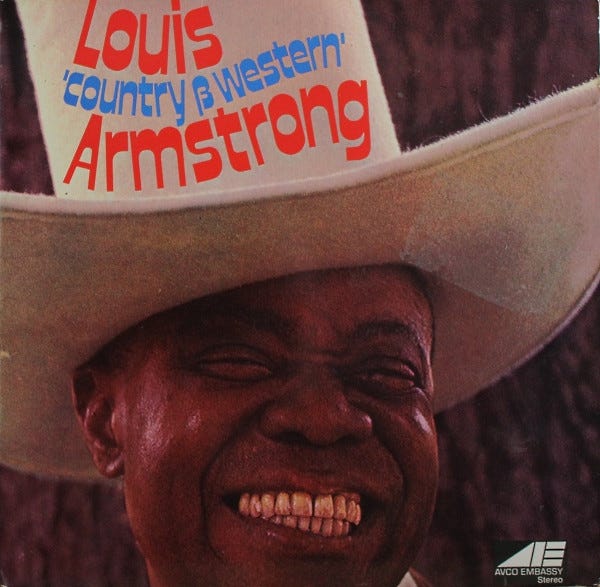
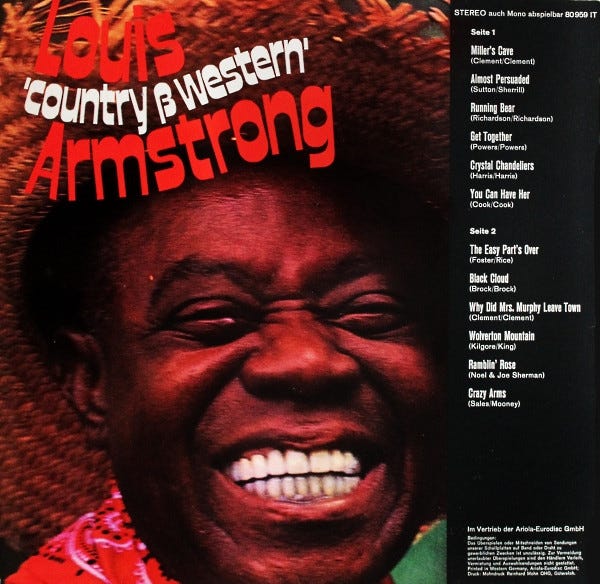
Sing! Sing! Sing! : My tagline is, “Celebrating the great jazz - and jazz-adjacent - singers, as well as the composers, lyricists, arrangers, soloists, and sidemen, who help to make them great.”
A production of KSDS heard Saturdays at 10:00 AM Pacific; 1:00PM Eastern.
To listen to KSDS via the internet (current and recent shows are available for streaming.) click here.
The whole series is also listenable on Podbean.com; click here.
SING! SING! SING!
Nat King Cole: "We Are Americans Too" (“Assault on a King”)
(BLACK HISTORY MONTH 2025-02-18)
Download: <or> play online:
THE REAL AMBASSADORS with special guest Ricky Riccardi
(Black History Month 2025-02-17)
download: <or> play online:
The Don Redman Songbook
(SSS #135 2025-02-15 Black History Month)
download: <OR> play online:
Pioneering African American Female Songwriters w Dr. Michael Garber
(BLACK HISTORY MONTH - SSS #134 2025-02-08)
download: <or> play online:
“Strange Fruit”: Billie Holiday | Abe Meeropol | Earl Robinson
(BLACK HISTORY MONTH 2025-02-05)
download: <OR> play online:
Louis Armstrong: Satchmo's Race Problem (with Ricky Riccardi)
(BLACK HISTORY MONTH 2025-02-03)
download: <or> play online:
BLACK HISTORY MONTH: The Black Experience in WW2
(SSS #133 2025-02-01)
Download: <OR> play online:
Bobby Hackett Meets the Great Singers
(SSS #132 2025-01-25)
Download: or play online.
Salute to Fruit, Part 1 - Stealin' Apples
(SSS #131 2025-01-18)
download: or play online:
Get Happy! The Harold Arlen-Ted Koehler Songbook
(SSS #130 2025-01-11)
Download: <or> play online:
The Buzz! (Jazz Journalists Association)
Neal Tesser interviews Will Friedwald
Listen here.
Let's Have a Party! NEW YEAR’S PARTY SPECIAL
(SSS #129 2025-01-04 )
download: or play online:
Best of 2024 Jazz Vocals
(SSS #128 2024-12-28)
download: <OR> play online:
Dylan Goes Eclectic! Bob Dylan Jazz & Pop Mixtape w ELIJAH WALD
(SSS #127 2024-12-21)
Download: <or> play online:
(for a more full list of recent radio shows, click here.)
SLOUCHING TOWARDS BIRDLAND is a subStack newsletter by Will Friedwald. The best way to support my work is with a paid subscription, for which I am asking either $5 a month or $50 per year. Thank you for considering. (Thanks as always to Beth Naji & Arlen Schumer for special graphics.) Word up, peace out, go forth and sin no more! (And always remember: “A man is born, but he’s no good no how, without a song.”)
Note to friends: a lot of you respond to my SubStack posts here directly to me via eMail. It’s actually a lot more beneficial to me if you go to the SubStack web page and put your responses down as a “comment.” This helps me “drive traffic” and all that other social media stuff. If you look a tiny bit down from this text, you will see three buttons, one of which is “comment.” Just hit that one, hey. Thanks!
Slouching Towards Birdland (Will Friedwald's SubStack) is a reader-supported publication. To receive new posts and support my work, consider becoming a free or paid subscriber.
Slouching Towards Birdland (Will Friedwald's SubStack) is a reader-supported publication. To receive new posts and support my work, consider becoming a free or paid subscriber.

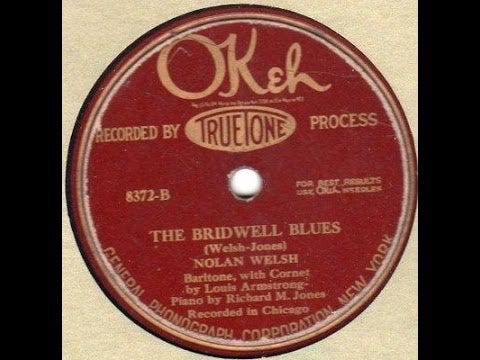

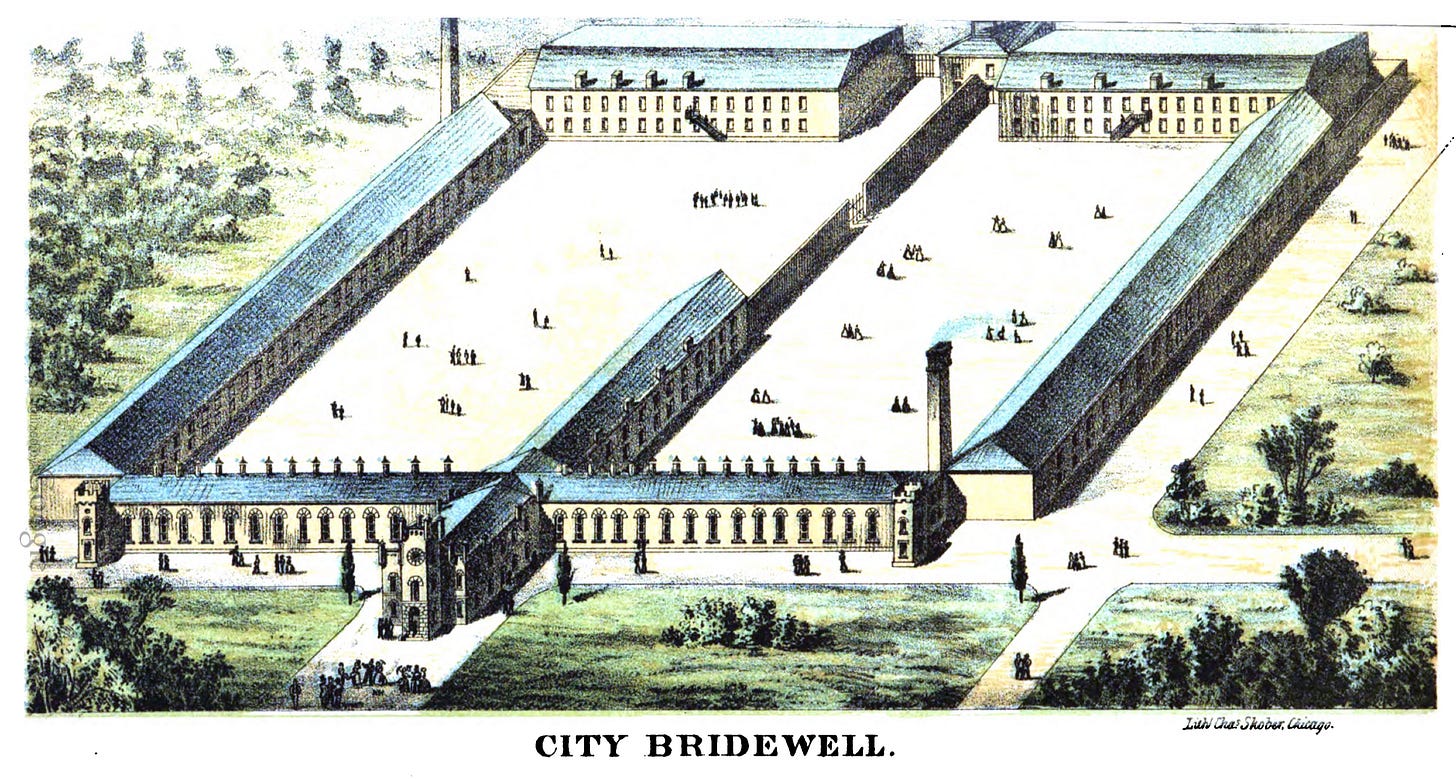
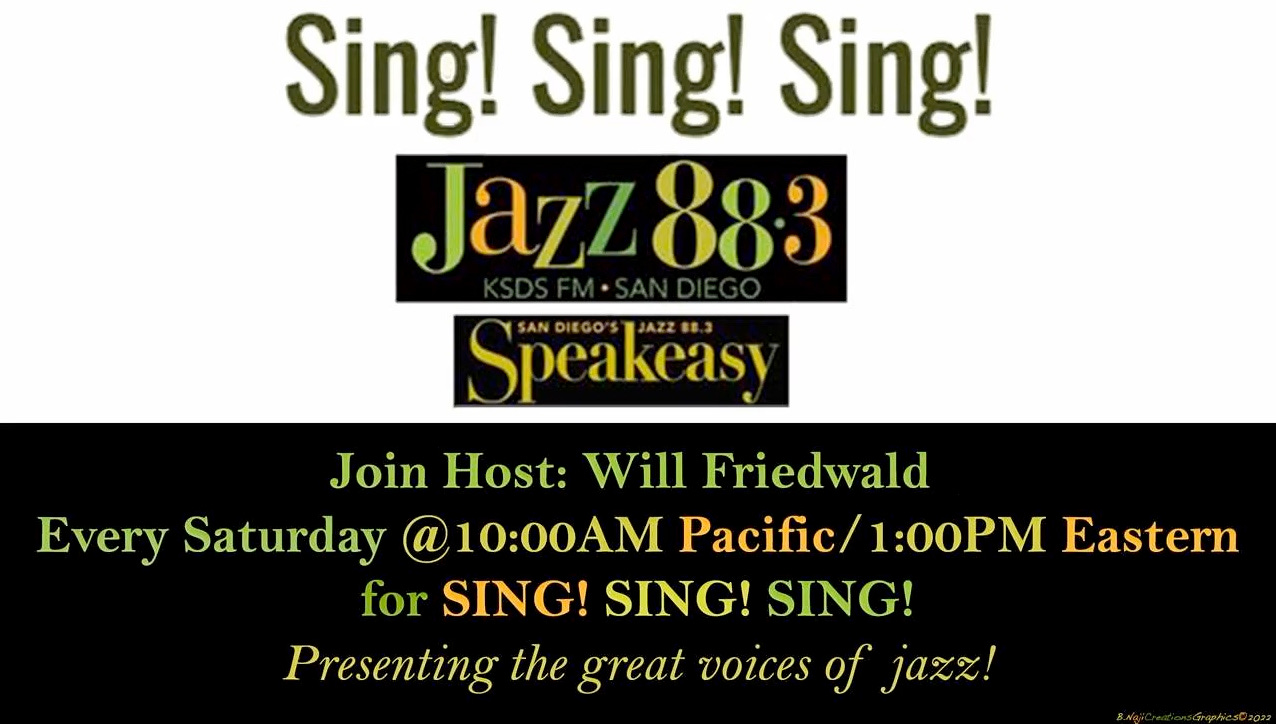
I can only imagine what contemporary listeners would have thought of Rodgers' yodeling sharing space with Satchmo's horn. It probably depended on their race...